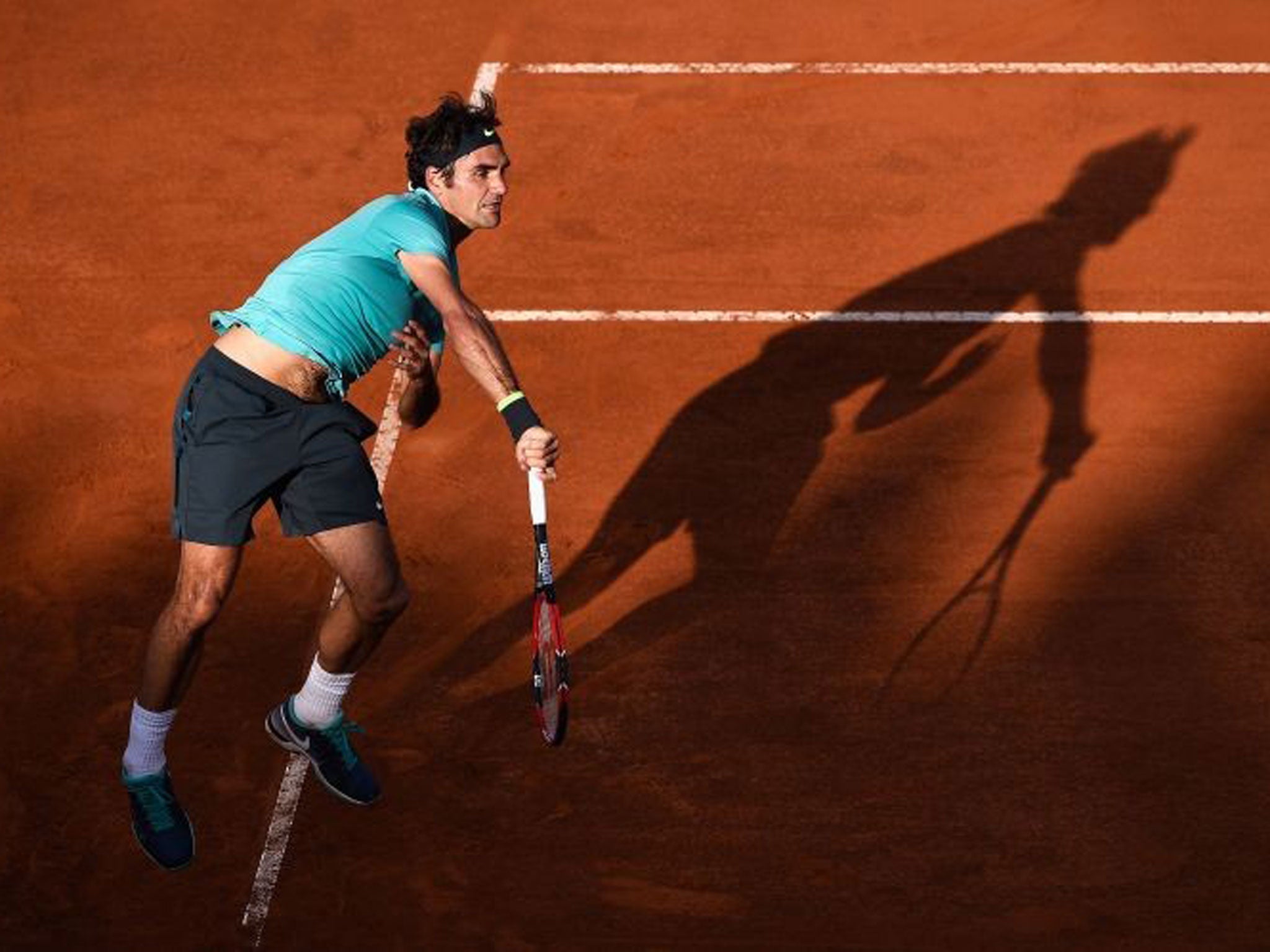Federer and Me: a Story of Obsession by Will Skidelsky, book review: An engaging read
Genius tennis-playing collides with a personal tale – with mixed results

Obsession is a strong word. And in the context of sport, the obsession bar is set very high. There are football fans who never miss a match; cycling fans whose idea of a holiday is three weeks following the Tour de France in a camper van; snooker fans who'll go wherever Ronnie O'Sullivan goes. Obsession has a very dark side. It was a Steffi Graf obsessive who stabbed Monica Seles.
I'm not sure that Will Skidelsky's "Story of Obsession" passes the obsession test, in part because of who he is obsessed by. Few dispute that Roger Federer is both the greatest and the most aesthetically pleasing player in tennis history, so to be powerfully affected by him is perfectly understandable. Tim Henman and Me: A Story of Obsession – now that would have been different.
There's a further problem with Federer and Me in that Federer is a long way into his career before Skidelsky really picks up on him, in the late Noughties. Skidelsky has missed many of his triumphs. There's a sense in which he's playing catch-up, not least because David Foster Wallace cornered the market in literary appreciation of Federer with his 2006 essay in the New York Times, "Federer as Religious Experience", albeit that Skidelsky acknowledges the piece. Plus the book is coming out with Federer nearing the end of his career, and in tennis terms it feels like the author is trying to hit winners from deep behind the baseline. So what's left? In fact, quite a lot.
Federer and Me is thought-provoking, instructive and highly readable. Skidelsky has a central thesis – that Federer is both classical and modern – which he underpins with keen insights into both his character and his technique. A chapter about the evolution of racket technology is positively gripping. He is excellent on the changes tennis has undergone in the past few decades, and on what makes it such a rewarding sport to watch. And from out of nowhere comes a hatchet job on Federer's great rival Rafa Nadal, one of the most popular players of this or any other era. For that alone Skidelsky gets marks for original thinking.
The freshness of the writing is perhaps attributable to Skidelsky's distance from the professional tennis circuit. He is not jaded from round after round of boring post-match press conferences. When he does attend tournaments – notably a wide-eyed visit he makes to one in Halle in Germany – he remains very much the fan, not the sportswriter, though he or his editor should still know how to spell Maria Bueno.
Then there is the "me" side of Federer and Me. This places the book very much in a tradition that started nearly a quarter of a century ago with Nick Hornby's Fever Pitch – sports books that are as much explorations of male identity, "personal journeys" in which the author's relationship with his father is key. Skidelsky's father is the historian and biographer Robert Skidelsky. He pops up from time to time, rarely sympathetically. Skidelsky's girlfriends are likewise problematic figures until he finally marries and settles down.
Skidelsky looks to his own tennis for fulfilment, but the promising 10-year-old grows up to be no more than a respectable club player. He follows an uncertain path through school, university and beyond towards a career in literary journalism. Depression and therapy put in appearances. His life is touched by tragedy, and we're asked to believe that a trip to see Federer play helps alleviate it. The genre demands this approach, but these personal aspects sit rather uneasily. Skidelsky never emerges as enough of a character to bring to life episodes such as the one in which he loses his virginity. You're left wondering what the story is doing there.
Even Federer's most ardent fans might concede that he can take himself a touch seriously. And Skidelsky has the same tendency in what is otherwise a thoroughly engaging book.
Join our commenting forum
Join thought-provoking conversations, follow other Independent readers and see their replies
Comments